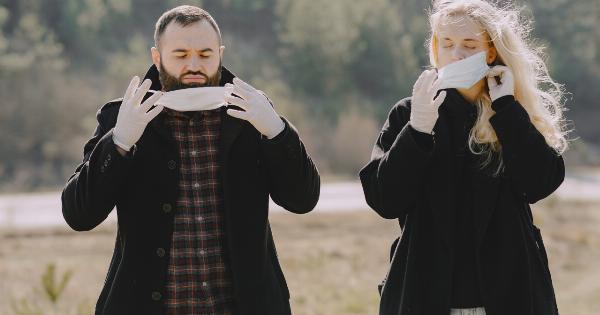Sexual allergies, also known as allergic reactions to sexual activity, are uncommon but real conditions that can affect both men and women.
These allergies can occur as a result of direct contact with certain substances associated with sexual activity, causing an allergic reaction in the genital area or even throughout the body. It is important to understand the causes, symptoms, and treatment options for sexual allergies in order to ensure a safe and enjoyable sexual experience.
Causes of Sexual Allergies
There are various substances that can trigger sexual allergies in individuals. Some of the common causes include:.
- Semen Allergy: A semen allergy is a type of allergic reaction to proteins found in semen. This can lead to symptoms such as itching, redness, swelling, and even difficulty breathing.
- Lubricants and Condoms: Certain ingredients in lubricants and condoms, such as latex or spermicides, can cause allergic reactions in some individuals.
- Chemicals in Personal Care Products: Fragrances, dyes, or preservatives found in personal care products like soaps, lotions, or powders can lead to allergic reactions during sexual activity.
- Latex Allergy: Latex is a common material used in condoms and other barrier methods. Some individuals may develop an allergic reaction to latex, resulting in itching, rash, or swelling.
Symptoms of Sexual Allergies
The symptoms of sexual allergies can vary from person to person. Some of the common symptoms associated with sexual allergies include:.
- Itching or Redness: Itchy or red skin in the genital area can be a sign of an allergic reaction.
- Rash: A rash may develop on the skin after exposure to a specific allergen.
- Swelling: Swelling of the genital area, lips, tongue, or throat can occur in severe cases.
- Hives: Raised, itchy welts on the skin may appear after exposure to an allergen.
- Difficulty Breathing: In rare cases, allergic reactions during sexual activity can cause difficulty breathing, wheezing, or even anaphylaxis.
Treatment Options
If you suspect that you have a sexual allergy, it is important to consult with a healthcare professional to determine the exact cause of your symptoms. Some treatment options for sexual allergies include:.
- Avoidance: The most effective way to manage sexual allergies is to avoid the substances that trigger the allergic reaction. This may involve using alternative products or engaging in sexual activities that do not involve direct contact with the allergen.
- Medications: Over-the-counter antihistamines or topical corticosteroid creams can help alleviate symptoms such as itching, redness, or rash.
- Desensitization Therapy: In some cases, a healthcare professional may recommend desensitization therapy, which involves gradually exposing the individual to small amounts of the allergen in order to reduce sensitivity over time.
- Alternative Products: If you have a latex allergy, using latex-free condoms or other barrier methods can help prevent allergic reactions during sexual activity. Similarly, using hypoallergenic lubricants and personal care products can reduce the risk of allergic reactions.
Preventing Sexual Allergies
While it may not always be possible to prevent sexual allergies, there are steps you can take to reduce the risk of developing an allergic reaction during sexual activity:.
- Communicate with your partner about any known allergies or sensitivities.
- Read labels and ingredients of personal care products, lubricants, and condoms to ensure they do not contain any known allergens.
- If you have a known latex allergy, always opt for latex-free condoms or other barrier methods.
- Consider patch testing for specific substances if you suspect you may have an allergy.
- If you experience any symptoms of an allergic reaction during or after sexual activity, seek medical attention promptly for proper diagnosis and treatment.
Conclusion
Sexual allergies are uncommon but real conditions that can affect individuals during or after sexual activity.
It is important to be aware of the potential causes, symptoms, and treatment options for sexual allergies in order to ensure a safe and enjoyable sexual experience. If you suspect you have a sexual allergy, consult with a healthcare professional for appropriate diagnosis and guidance.





























